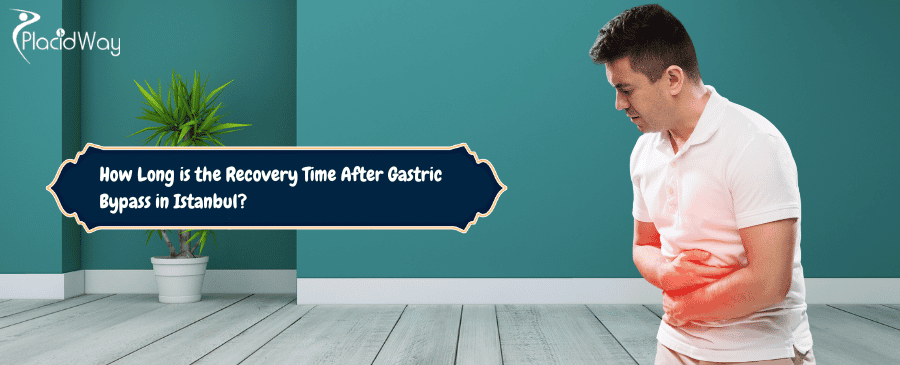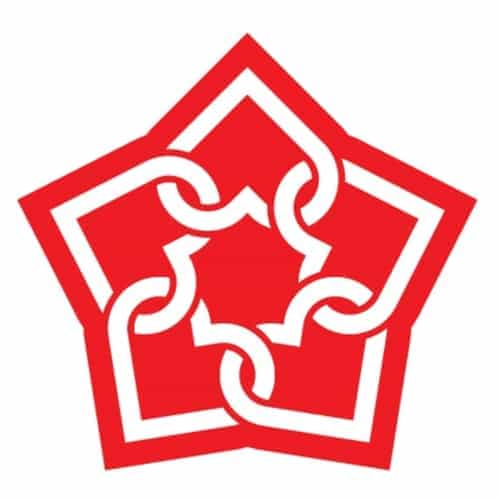Gastric Bypass Recovery in Istanbul: What to Expect

Considering a gastric bypass in Istanbul is a significant step towards a healthier life, and one of the most pressing questions for prospective patients is about the recovery process. You're likely wondering, "How long will it take before I feel like myself again?" The straightforward answer is that the initial, most intensive phase of recovery is quite short. Most patients spend only 2 to 4 days in the hospital and are able to resume light activities within a week. You can generally expect to be back to your daily routine, including work, within 4 to 6 weeks. However, it's important to view recovery as a complete journey. This journey includes not just the physical healing from the surgery but also the long-term adaptation to a new way of eating and living.
Istanbul has become a premier destination for bariatric surgery, attracting patients from all over the world. This is due to its combination of highly skilled surgeons, state-of-the-art medical facilities, and significantly more affordable costs compared to Europe and North America. The care packages offered often include everything from the procedure itself to accommodation and post-operative support, making the entire experience smooth and stress-free. Understanding the recovery timeline is crucial for planning your trip and setting realistic expectations. This guide will walk you through every stage of the recovery time, from the moment you leave the operating room to your long-term success, ensuring you are fully prepared for this life-changing procedure in the vibrant city of Istanbul.
How Long is the Initial Hospital Stay for Gastric Bypass in Istanbul?
Following your gastric bypass surgery, you will be moved to a recovery room for close observation. The primary goals during your hospital stay are to manage post-operative pain, prevent complications like blood clots, and begin the transition to your new diet. The nursing staff will encourage you to start moving as soon as possible, usually within a few hours of the surgery. This early ambulation is critical for promoting blood circulation and preventing respiratory issues.
Your surgeon and a dietitian will oversee the start of your post-op diet, which begins with clear liquids. The medical team needs to see that your new digestive system is functioning properly and that you can stay hydrated. Before you are discharged, you will receive detailed instructions on wound care, medications, and the dietary stages you'll need to follow at home. The short hospital stay is possible because the procedure is typically performed laparoscopically, which involves smaller incisions and leads to a faster recovery compared to traditional open surgery.
What is the Total Recovery Time for Gastric Bypass?
It's helpful to think of recovery in phases. The first phase is the acute recovery period, which lasts for the first few weeks. During this time, you will focus on healing, managing discomfort, and strictly following a liquid-to-pureed diet. You'll likely feel fatigued as your body uses energy to heal and adjusts to a lower calorie intake.
The second phase, from about 6 weeks to 6 months, involves a gradual return to a more normal, albeit modified, diet and lifestyle. Your energy levels will increase, and you can incorporate more physical activity. This is also the period where you will see the most rapid weight loss. The final phase is the long-term adjustment, where your new eating habits become second nature. Full adaptation, both physically and psychologically, can take up to a year as your weight stabilizes and you settle into your new, healthier life.
When Can I Fly Home After Gastric Bypass in Istanbul?
The waiting period before flying is a critical safety measure. Long flights increase the risk of developing deep vein thrombosis (DVT), or blood clots in the legs, especially after a major surgery. Your surgeon will want to see you for at least one follow-up appointment before you depart to check your incision sites and overall progress.
During your flight, it's important to take precautions. Wear compression stockings, stay well-hydrated, and get up to walk around the cabin every hour or so if possible. These actions help to maintain good blood circulation. The clinics in Istanbul are very experienced with international patients and will provide you with a 'fit to fly' letter and clear instructions to make your journey home as safe and comfortable as possible.
What Does the First Week of Recovery Look Like?
After being discharged from the hospital (typically day 3 or 4), you will continue your recovery at your hotel. The main focus is on sipping fluids constantly throughout the day to prevent dehydration. You will be on pain medication to manage discomfort from the incisions and internal healing. It is normal to feel tired and weak during this first week.
Walking is your primary form of activity. Short, gentle walks around your room or hotel hallway are essential for preventing blood clots and pneumonia. You must avoid any lifting or strenuous activity. By the end of the first week, you will likely have a follow-up appointment with your surgeon before you are cleared to fly home.
How Much Pain Should I Expect After Surgery?
Since the gastric bypass in Istanbul is almost always done laparoscopically, the pain is much less severe than with open surgery. You will feel soreness and discomfort, particularly for the first few days, which is managed with pain relief provided by the hospital. Some patients also report gas pain in the abdomen or shoulder area, which is a common result of the carbon dioxide used to inflate the abdomen during surgery. Walking helps to relieve this gas pain effectively.
By the time you are discharged, the pain should be manageable with oral pain medications. Most patients find they only need these for a week or two. If you experience sudden, severe, or worsening pain, it's crucial to contact your medical team immediately as this could be a sign of a complication.
What are the Dietary Stages After Gastric Bypass?
Your post-operative diet is carefully structured to protect your healing stomach and ensure you get the necessary nutrients. It is the most critical component of a successful recovery. Rushing through the stages can cause pain, vomiting, and potentially serious complications like leaks.
Here is a typical dietary timeline provided by clinics in Istanbul:
When Can I Return to Work?
Your ability to return to work depends heavily on your energy levels and the physical requirements of your job. If you work from home or have a sedentary office job, you might feel ready to go back after two weeks, perhaps starting with half-days. Your concentration and energy levels will still be lower than usual as your body adjusts to the new diet and ongoing healing.
For jobs that require heavy lifting, strenuous physical activity, or a lot of movement, it is essential to wait at least 4 to 6 weeks. It is crucial to get clearance from your surgeon before resuming such activities to avoid causing a hernia or other injuries to your healing abdomen. Listen to your body and don't push yourself too hard too soon.
What Activities Should I Avoid During Recovery?
Your abdominal muscles need time to heal properly. Putting too much pressure on them can lead to complications. In addition to lifting restrictions, you should also avoid:
- Vigorous household chores: This includes vacuuming, moving furniture, or carrying heavy loads of laundry.
- Driving: You should not drive for at least one week and while you are taking narcotic pain medication. You need to be able to make sudden movements without pain to drive safely.
- Swimming and bathing: Avoid submerging your incisions in water (baths, pools, hot tubs) until they are fully healed and your surgeon gives you the okay, which is typically around 3-4 weeks. Showers are usually permitted a couple of days after surgery.
When Can I Start Exercising Again?
Exercise is a cornerstone of long-term success after bariatric surgery. It accelerates weight loss, improves muscle tone, and boosts your mood. The key is to reintroduce it gradually. Walking is the first and most important exercise. Start with short, 5-10 minute walks multiple times a day and slowly increase the duration and pace as you feel stronger.
After about a month, you can start incorporating other low-impact cardio exercises. Listen to your body and stop if you feel any pain. Weight training should be introduced later, starting with light weights and focusing on proper form to prevent injury. A structured exercise plan helps maximize your weight loss results and build healthy habits for life.
What are the Signs of Complications I Should Watch For?
Being informed about potential warning signs is part of a safe recovery. The clinics in Istanbul will provide you with a comprehensive list of symptoms to monitor and 24/7 contact information for their medical team. The most serious early complication is an anastomotic leak (a leak from the staple line), which requires immediate medical attention.
Other signs to be aware of include:
- Inability to drink liquids
- Pain, swelling, or redness in your legs (could indicate a blood clot)
- Dizziness or fainting
- Rapid heart rate
Trust your instincts. If you feel that something is not right, it is always best to err on the side of caution and seek medical advice.
Ready to explore your options for a healthier future? PlacidWay is your trusted partner in medical tourism. We connect you with world-class, accredited clinics in Istanbul for safe and affordable gastric bypass surgery. Let us help you navigate your journey with confidence. Contact PlacidWay today to get a free quote and personalized treatment plan.


.png)






.png)
.png)






Share this listing